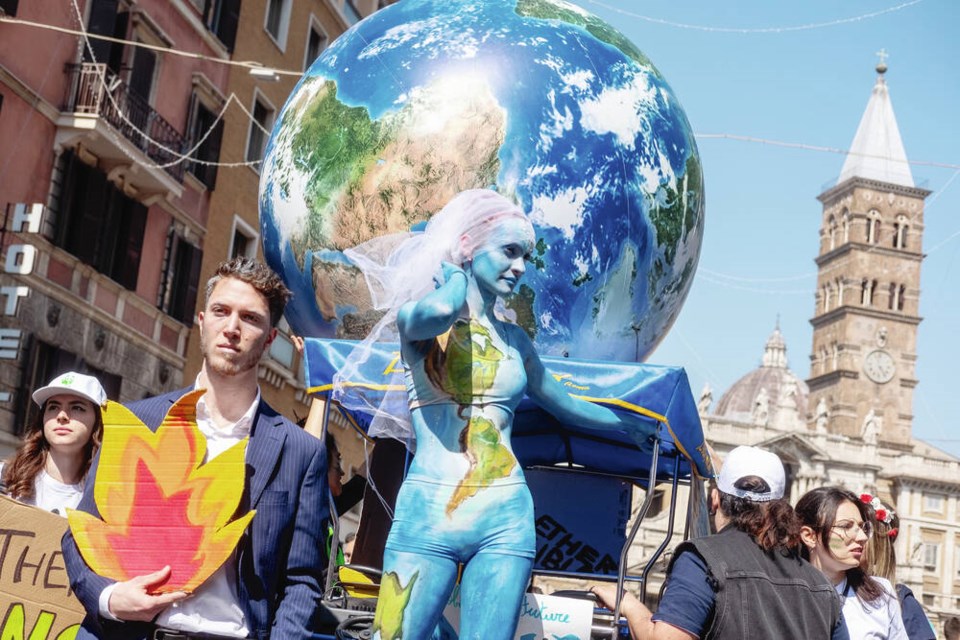Thursday, April 7, is World Health Day. The theme this year is Our Planet, Our Health.
WHO wants to “focus global attention on urgent actions needed to keep humans and the planet healthy and foster a movement to create societies focused on well-being.”
This theme is very timely, reflecting a growing global concern about what we are doing to the Earth, and what that means for humanity — not to mention what it means for all the other species with whom we share the Earth.
The UN Secretary General, Antonio Guterres, said it succinctly and bluntly in December 2020: “Humanity is waging war on nature. This is suicidal.” He has talked since of the “triple crisis” of climate change, biodiversity loss and pollution.
The WHO “estimates that more than 13 million deaths around the world each year are due to avoidable environmental causes. This includes the climate crisis, which is the single biggest health threat facing humanity. The climate crisis is also a health crisis.”
We have certainly experienced that here in B.C. In the past year alone, we have experienced a heat dome that contributed to the deaths of 525 people in a one-week period from June 25 to July 1st, according to the B.C. Coroners Service.
By comparison, the service reported 2,224 deaths in all of 2021 from a suspected illicit drug overdose. In addition, the heat caused the deaths of more than one billion seashore animals, according to UBC marine biologist Chris Harley.
Meanwhile, fires entirely destroyed Lytton and killed two people there, while also burning buildings in other communities and causing much harm to our forests. In addition, massive floods — exacerbated by deforestation — inundated farms, killing tens of thousand of animals, and destroyed highways and other infrastructure.
And this is before climate change becomes really serious! In a March 21 speech to the Economist Sustainability Summit, Guterres told the attendees that the world is “sleepwalking to climate catastrophe” and that meeting the goal of keeping global warming to under 1.5 degrees C “is on life support. It is in intensive care.”
But the real threat is not just climate change. It is the combination of massive and rapid global ecological changes rooted in a way of life, driven by high-income countries, that is unsustainable.
Which is why the WHO wants to focus our attention on the urgent actions needed to create societies focused on well-being. The recent Geneva Charter from WHO defines such societies as “committed to achieving equitable health now and for future generations without breaching ecological limits.”
The WHO has some strong suggestions for what that means in practice, including keeping fossil fuels in the ground; stopping new fossil-fuel exploration and projects; stopping fossil-fuel subsidies; and taxing the polluters.
It also recommends repurposing agriculture subsidies towards sustainable and healthy food production and taxing highly processed foods and beverages high in salt, sugars and unhealthy fats — and much else besides.
Here in B.C. on World Health Day, Doctors for Planetary Health will be releasing and presenting to the B.C. government and all the MLAs its full Code Red Action Plan.
Motivated by a concern for the wellbeing of the people of B.C., and of the world, the action plan calls on the B.C. government to declare a climate and ecological emergency and develop and implement a transformative emergency plan; take action on climate change; protect and restore nature; create broad transformative change focused on human wellbeing in balance with nature; and ensure a just transition.
In addition, an article by Doctors for Planetary Health to be released on the Healthy Debates website will outline what health professionals can do in their roles as care providers, patient advocates, part of the health-care system, and as citizens. And it will urge them to take the Planetary Health Pledge and share videos of themselves doing so, an initiative that is fast becoming a global movement.
The pledge is a commitment “to work to protect the health of people, their communities, and the planet … and all of its life forms for current and future generations.”
It is a pledge that all our political and corporate leaders need to take, for our planet and our health.
Dr. Trevor Hancock is a retired professor and senior scholar at the University of Victoria’s School of Public Health and Social Policy.



